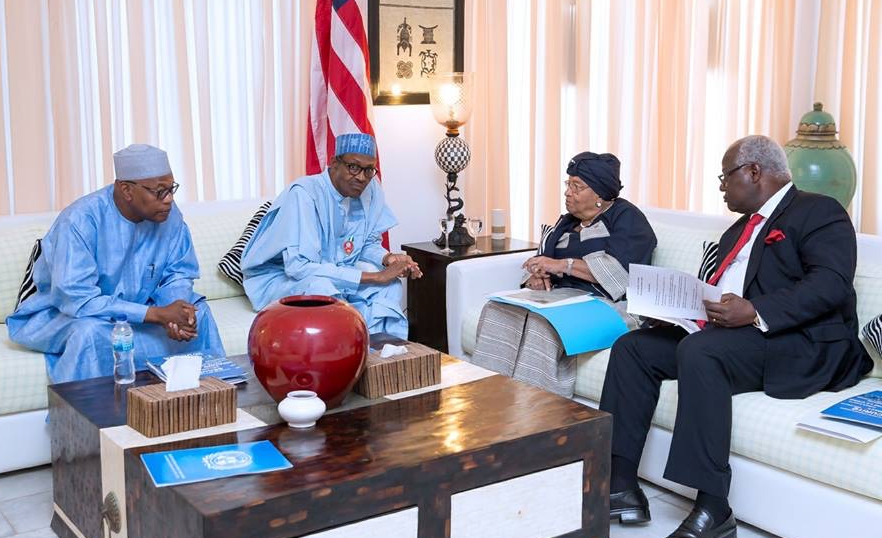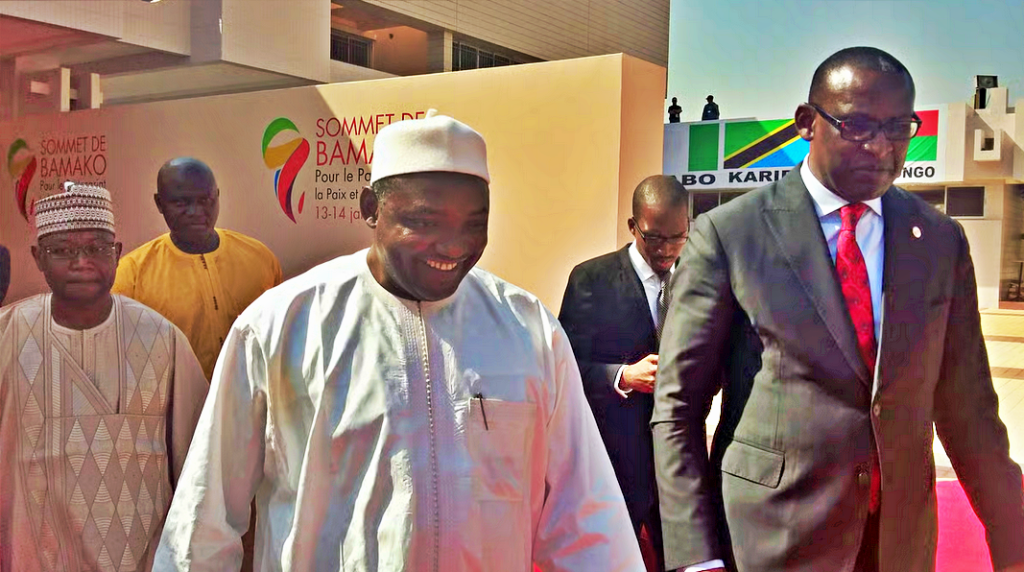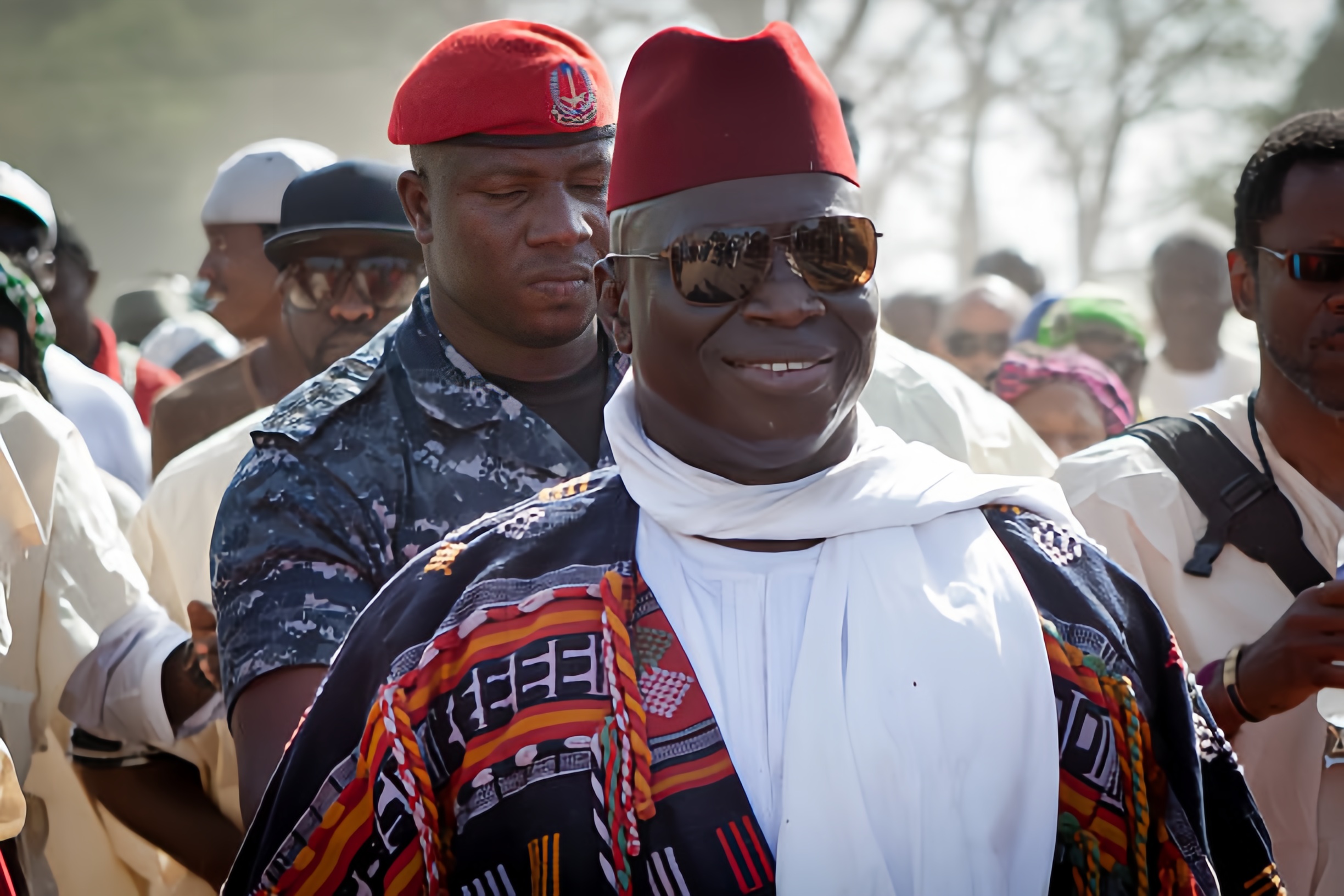Gambiaj.com – (KANILAI, The Gambia) – Former President Yahya Jammeh has announced that he will return to The Gambia in November 2025, declaring that his return is “legally covered” by an agreement he claims was signed with mediators during the post-election crisis of January 2017.
In an extended audio address to his supporters, Jammeh said that the agreement—reportedly involving former Guinean President Alpha Condé, former Mauritanian President Mohamed Ould Abdel Aziz, and a United Nations representative—granted him the right to return home six months after leaving the country.
According to Jammeh, the Memorandum of Understanding (MoU) was signed in his presence by Condé, Aziz, UN representative Mohamed Ibn Chambas, and Gambian opposition leader Halifa Sallah, whom he identified as a signatory on behalf of the coalition government.
“It was agreed that I come back after six months, without preconditions,” Jammeh asserted. “That is what is there—that I can go back to The Gambia as a Gambian citizen. And there were many guarantees. Six months turned out to be almost nine years. I want to announce to you that this November 2025, I’m coming back to The Gambia.”
A “Legally Covered” Return?
Jammeh’s claim of legal immunity stems from what he describes as a negotiated settlement brokered to avoid violent confrontation in January 2017, when ECOWAS forces prepared to intervene militarily to enforce the results of the 2016 election he lost to Adama Barrow.
He maintains that the agreement, drafted “in his office,” was endorsed by the UN and ECOWAS envoys as part of the conditions for his peaceful departure into exile in Equatorial Guinea.

“The agreement secured by Alpha Condé and President Aziz, together with the UN representative, was authorized to sign on behalf of the UN Secretary-General,” Jammeh said. “They pleaded with me to leave, and I agreed because I did not want any Gambian to become a refugee.”
Jammeh’s interpretation of the accord directly challenges the official version long held by ECOWAS and the Barrow government, which have never acknowledged any clause guaranteeing his return or immunity from prosecution.
Tone and Timing: Political Calculation Amid Pre-Electoral Tension
Analysts see Jammeh’s latest pronouncement as a deliberate political maneuver, timed to energize his loyal base within the Alliance for Patriotic Reorientation and Construction (APRC) ahead of the 2026 general elections.
The tone of his message—at once defiant, emotional, and nostalgic—blends religious conviction with legal justification. He presents himself as a misunderstood patriot wronged by international interference but still willing to forgive and reconcile.
“I have forgiven all those who were expelled or made to leave the APRC,” he declared. “We must unite and reconcile to save our country.”
His renewed emphasis on “unity” within the APRC follows years of internal division between factions loyal to him and those aligned with the party’s current leadership, which cooperates with President Barrow’s government.
Rewriting the 2017 Narrative
Jammeh’s message also revisits his account of the 2016-2017 political standoff, portraying himself as a victim of international pressure and deception. He accused former French President François Hollande and ECOWAS leaders of “demeaning” him during the Bamako Summit, where regional leaders urged him to step down.
“France is not a member of ECOWAS, not a member of Africa,” Jammeh said. “For somebody to declare in the presence of African heads of state that Adama Barrow is the president, whether anybody likes it or not, was unacceptable.”

By revisiting these details, Jammeh seeks to reframe his 2017 departure as an honorable act of national sacrifice rather than a forced exile—a narrative aimed at restoring his legitimacy among supporters who continue to view him as a decisive and disciplined leader.
A Calculated Challenge to the Political Order
Jammeh’s announcement, coming less than a year before the 2026 elections, poses a new test for President Barrow’s administration and The Gambia’s fragile political stability.
His return—if realized—would not only reignite old political and legal questions about accountability for alleged human rights violations under his rule but could also reshape the electoral landscape by consolidating opposition support or polarizing voters along loyalty lines.
While the government has not yet responded officially to Jammeh’s statement, the mere declaration of intent has already stirred public debate over whether the alleged 2017 agreement could, in fact, provide any lawful basis for his immunity or return.
Yahya Jammeh’s declaration to return to The Gambia in November underlines his enduring political ambition and confidence in what he claims to be a “binding international guarantee.”
However, given the pre-electoral context, his message appears as much a legal assertion as a political provocation—a carefully timed reminder that, nearly nine years after his exile, the man who ruled The Gambia for 22 years still considers himself part of the country’s political equation.










